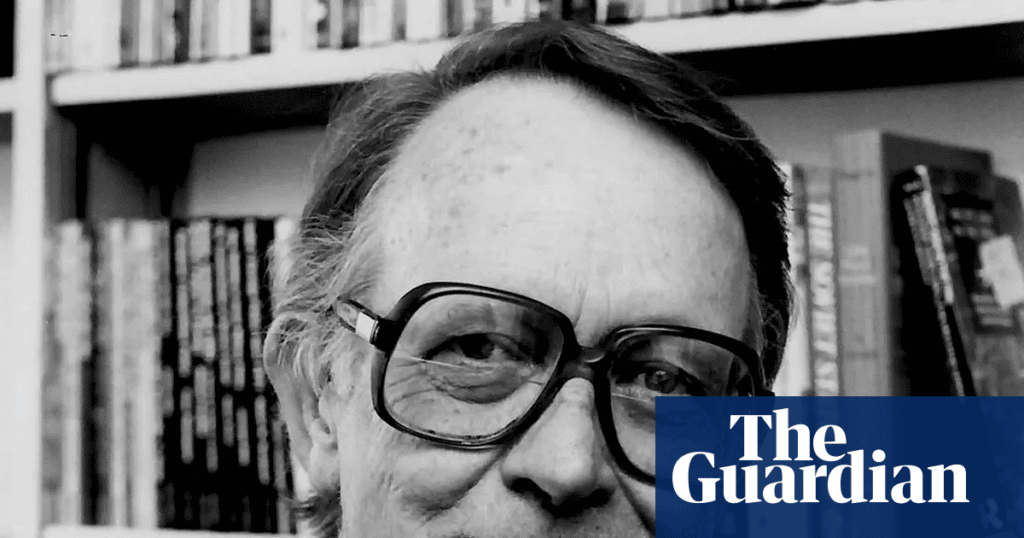Jack Spence, who has died aged 94, was an influential scholar of diplomacy and South African politics. His research and policy advice contributed to South Africa’s transition from apartheid to democracy, and his mentoring of former students helped many to reach leadership positions in their fields.
Although he “retired” in 1991, it was only 29 years later, after two further impactful jobs, that he really stopped work.
His scholarship – rigorous, eclectic and pragmatic – positioned him as a non-partisan voice through South Africa’s key political eras: under apartheid; during the 1990 transition; and under majority rule post-1994. He was uniquely placed to engage and advise, and became a mediator with policy-makers from the liberation parties, the apartheid regime and key external actors such as the US, UK and the Soviet Union. While critical of apartheid, he urged a pragmatic understanding of South Africa’s complex political realities.
In the 1980s, his nuanced views contrasted with more radical voices in the anti-apartheid movement, sometimes drawing criticism. Yet he championed academic freedom and returned frequently to lecture at the University of the Witwatersrand (Wits), encouraging others to do the same. His relationship with the university continued till his death; he funded a scholarship for young South Africans to study at the African Leadership Centre at King’s College London.
The most significant work among his many books and more than 60 articles, Ending Apartheid (2010), co-authored with David Welsh, remains a key text on South Africa’s democratic shift. Also notable are Republic Under Pressure: A Study of South African Foreign Policy (1986), Violence in Southern Africa (1989), Lesotho: The Politics of Dependence (1977) and New Perspectives on Diplomacy (2021, edited with Claire Yorke and Alastair Masser).
He co-founded two academic publications – the British Journal of International Studies and The Journal of Southern African Studies – and edited International Affairs, shaping the development of international studies in the UK and beyond. He also served as chairman of the British International Studies Association and president of the African Studies Association, and was awarded three honorary doctorates and four honorary fellowships. In 2002 he was made OBE.
Born in Krugersdorp, in what is now Guateng, South Africa, Jack was the son of Violet (nee Brown) and John Spence, a British miner who had moved to work in the country’s gold mines. He attended Pretoria boys high school and later Wits University, graduating in 1952.
At the London School of Economics he studied for a degree in economics and met his wife, Sue Steen, who was taking the same subject. They moved to South Africa when Jack got a job at the University of Natal in 1958. The couple became active in the Liberal party of South Africa – the only non-racial political party open to all in the country at the time. Liberalism remained a central influence throughout Jack’s life.
He returned to the LSE in 1961 as a Rockefeller junior fellow, then took up a lectureship at University College Swansea in 1962. In 1973, he was appointed to a chair in politics at the University of Leicester, where he remained until his retirement in 1991. He served as head of the department of politics and as pro-vice-chancellor (1981–85), and was known for his calm leadership and commitment to collegiality and intellectual freedom.
Although he had officially retired, the Royal Institute of International Affairs (Chatham House) enticed him to become its director of studies in 1991. There, he developed closer ties with the South African Institute of International Affairs and in 1995, when Elizabeth II and the Duke of Edinburgh visited Chatham House before a state visit to post-apartheid South Africa, he briefed them privately on tricky issues they might confront; he also co-hosted a Chatham House-CBI event for Nelson Mandela’s state visit to the UK the following year.
True to form, in 1997, straight after retirement from Chatham House, Jack was immediately enticed back to work by the department of war studies at King’s College London, and what was initially a short-term appointment continued for 23 years. His diplomacy course became one of the most popular in the department, sometimes taught multiple times a year to meet demand. He remained active in teaching and publishing into his 80s.
In addition to writing newspaper articles in the UK and South Africa, in 1994 he acted as the in-country pundit for BBC Radio 4’s Today programme, for South Africa’s first multiparty election in which all races could vote. He also gave evidence in 1993 to the Goldstone commission, which was set up to investigate political violence and intimidation during the negotiations to end apartheid. A decade later, Jack served as the specialist adviser to the House of Commons foreign affairs committee inquiry on the future of UK-South Africa relations.
Beyond academia, Jack continued to advise governments, thinktanks and NGOs on African political issues. Known for distilling complex dynamics into clear, actionable insights, his expertise was highly sought after. He served as the academic adviser to the commandant at the Royal College of Defence Studies.
Jack was known for his communication style – he preferred face-to-face conversations in his office or in pubs rather than emails or calls on mobiles. He would send handwritten postcards, often with encouraging notes, to colleagues and students.
More than 20 years ago he advised me on how to create Chatham House’s Africa programme, which continues to thrive today. Mentorship was central to his life, and many of his students, now leaders in their fields, recall his generosity and guidance. “My spies are everywhere,” he would say with a smile, referring to his extensive network of former students.
Sue died in 2021. Jack is survived by his daughter, Rachel.

